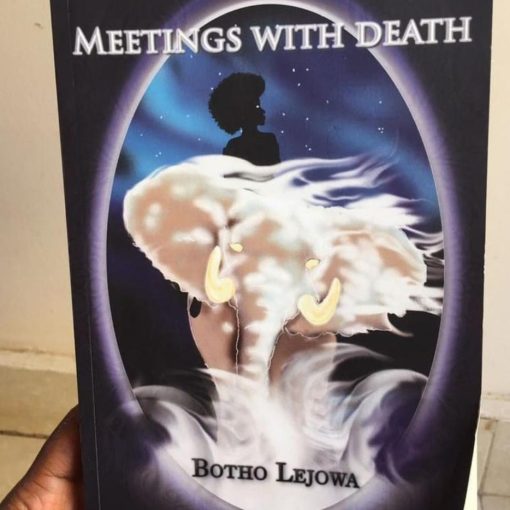To the best of our — African Writers Trust and Shantou University — knowledge, the recent poetry workshop conducted by Mildred Barya of AWT was the first example of representatives from an African cultural organization meeting with representatives from a Chinese cultural organization in Guangdong Province, China. In fact, we’re not even sure if this isn’t a first for all of mainland China — usually, the exchanges between African and Chinese intellectuals and writers are government sponsored events that take place in Northern China, and the topics concern agriculture, economics, security, policy issues, and like. We thank the Shantou Writers Association for participating in this historic event, and for their generosity, friendship, and willingness of the heart.
Below, a video clip of Mildred at work. Beneath that, a description of her workshop in English and Chinese (translation courtesy of Sallie, the STU student who worked mostly closely with Mildred throughout the workshop). And some pics of the workshop translation team. (More pics to come on Flickr).
Workshop Description 诗歌工作坊介绍
[twocol_one]
Good writing relies on the senses.
In this poetry workshop, we will learn how to pay attention to and closely observe our environments whether physical or imaginary. Our sight, hearing, taste, smell and touch will bring us poetry from those spaces. We will keep the writing simple but complex. Think of the simplicity and complexity of Haiku, the best book you’ve ever read, or your favorite birdsong. If you were to smell the birdsong rather than hear it, would it be like a dragon fruit or an orange? If you were to eat your favorite movie, would it be yummy and delicious? Your love life…is it tangy, bitter, rancid or spicy? What flavors and possibilities can your senses evoke?
There’s one rule: Honesty—which could mean your sense of feeling, thinking, and/or perceiving. It could also be your truth, your authentic writing that likes to be original instead of imitative, likes to be inspired by various traditions of poetry and forms without turning into a copy. Your senses will be your best friend, guide and teacher, and will expect you to read a lot, observe a lot, know a lot, and write a lot. They will bring you unique images (similes and metaphors) to make your poetry fresh, they’ll bring you stories buried deep in memory, in long-forgotten books, and conversations with your relatives, enemies and friends, real or imaginary. You can trust your senses to give you a poem with power to seduce, disturb, tickle, thrill, soothe or sadden the reader. That power will be in your language, your voice, your careful choice of words, your silences and echoes, the spaces between the said and unsaid.
We will try to enjoy the writing process, have as much fun as possible without abandoning craft, poetic visions and techniques that make poetry sing when working hand in hand with the imagination.
[/twocol_one] [twocol_one_last]
好的写作依赖于感官。
在诗歌工作坊中,我们将学习如何关注、观察我们周围的现实环境或想象世界。 我们的视觉、听觉、味觉、嗅觉和触觉将把诗歌引向我们。我们会让写作简单而又复杂。想一想日本俳句的简约与丰富,想一想你最喜欢的一本书,或是你最爱的鸟鸣声。如果你是要“嗅”到鸟鸣而不是听到它,那种香气是像火龙果还是橙子?如果你要“吃”下你最爱的那部电影,味道是否很美味?你的爱情生活…是刺鼻的、苦涩的、酸败的、还是辛辣的?你的感官能够激发出什么样的味道与可能性?
谨记一条规则:诚实——这可以指你的情绪、思考或感知层面的诚实。它同时也指向你的真实写作,你的文笔应该是原创的而非模仿的——诗歌的传统与形式带给你灵感,但不能让你的作品仅仅是一种复制。你的感官将是你最好的朋友、向导与老师,它们要求你广泛地阅读、观察、学习和书写。它们将带给你独特的意象(明喻与暗喻),让你的诗歌变得鲜活;它们将勾起埋藏于深处的记忆,让被人遗忘的故事重新被讲起,它们使你与亲人、朋友与敌人对话,无论那对话源自真实或是想象。请相信,你的感官能够让你写出一首充满力量的诗,它将能诱惑读者,令他们发痒,使他们不安或激动、平静或悲伤。这种力量将源自你的语言,你的声音,你仔细甄选的用词,你的沉默与回响,以及那言语之外的话语。
我们将试着去享受创作的过程,在尽情欢乐的同时也并不抛弃诗歌写作的技巧与理念——它们与想象力一同让诗歌吟唱。
[/twocol_one_last]
[twocol_one]

[/twocol_one] [twocol_one_last]

[/twocol_one_last]



